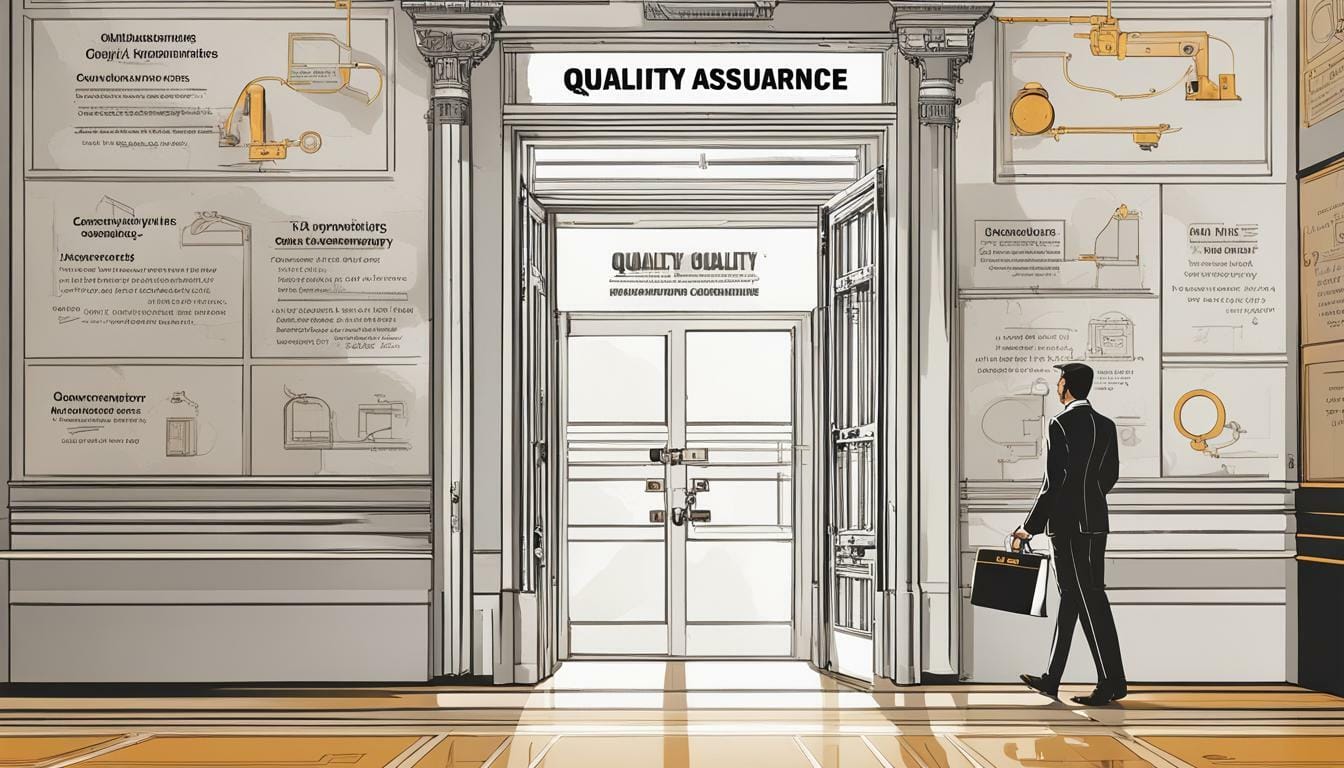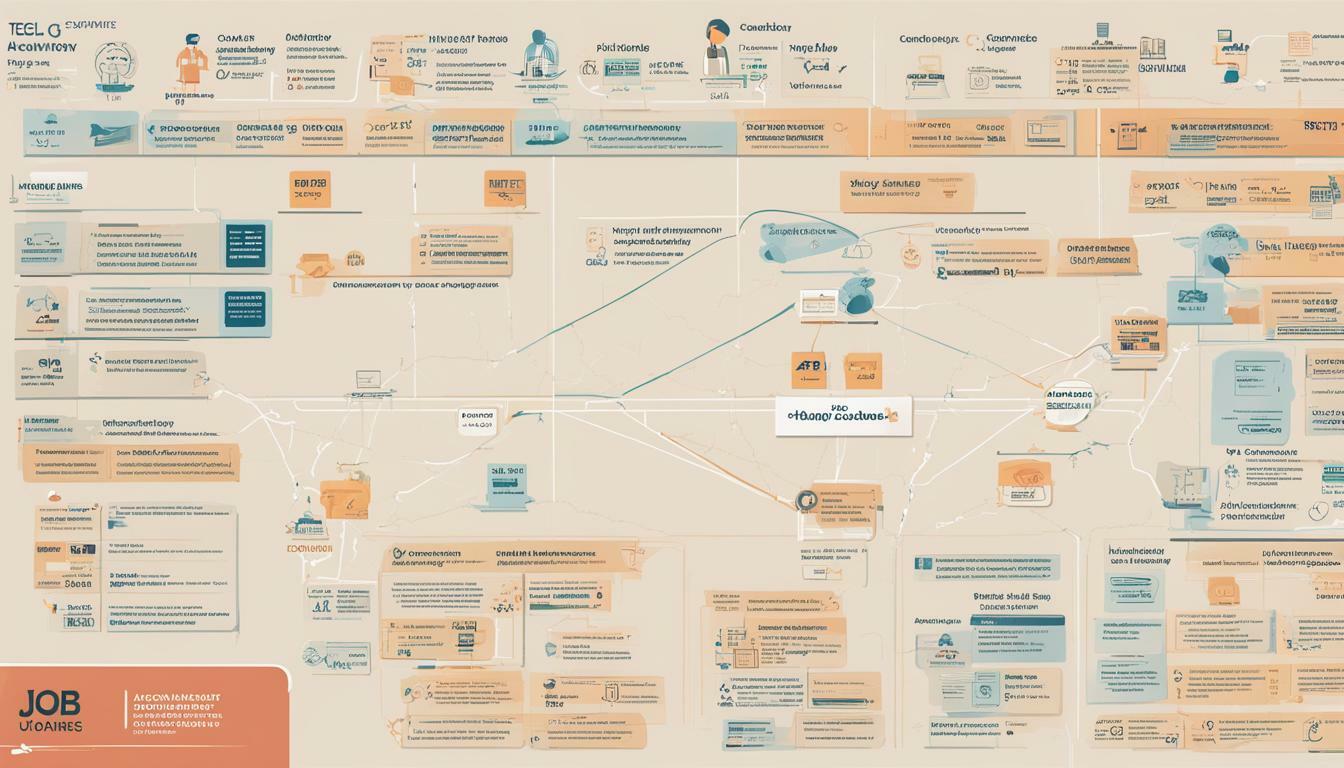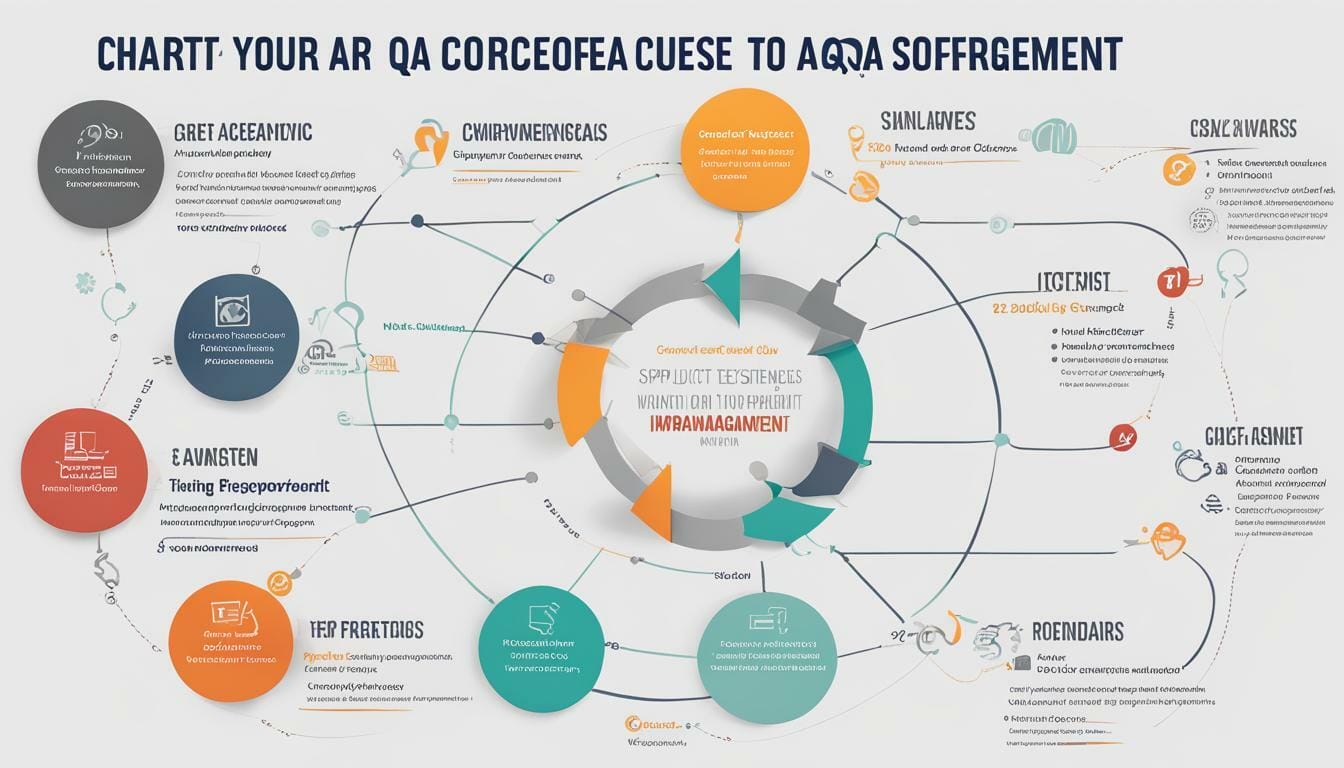Exploring Quality Assurance as a Career: Opportunities & Insights

Key Takeaways:
- Quality assurance is a rewarding career choice that involves ensuring products and services meet high standards of quality.
- The demand for quality assurance professionals is on the rise across a range of industries.
- A career in quality assurance offers exciting job opportunities and potential for career growth and development.
The Scope of Quality Assurance as a Career
Quality assurance (QA) is a field with a broad range of job opportunities and a promising career path. As technology continues to advance, there is a growing demand for professionals who can ensure that products and services meet the highest standards of quality. QA professionals work across a variety of industries and sectors, including software development, manufacturing, healthcare, and finance, among others. In the software industry, QA professionals play a critical role in testing and ensuring the quality of software products before they are released to the market. In manufacturing, QA professionals are responsible for overseeing the production process to ensure that products meet industry and regulatory standards. In healthcare, QA professionals ensure that medical devices, treatments, and procedures meet safety and effectiveness standards. In finance, QA professionals work to ensure that financial products and services are compliant with regulatory requirements. A career in QA provides a clear career path for professionals. QA professionals can progress from entry-level positions to managerial roles with the potential for upward mobility. Additionally, QA professionals can specialize in areas such as automation testing, software quality assurance, and testing methodologies.
With increasing demands for quality products and services, the demand for QA professionals is expected to grow in the coming years. The Bureau of Labor Statistics projects that employment of QA professionals will grow by 10% from 2019 to 2029, faster than the average for all occupations.
Whether you’re just starting your career or looking to make a change, a career in QA can offer a challenging and rewarding path with countless opportunities for growth and development.
A career in QA provides a clear career path for professionals. QA professionals can progress from entry-level positions to managerial roles with the potential for upward mobility. Additionally, QA professionals can specialize in areas such as automation testing, software quality assurance, and testing methodologies.
With increasing demands for quality products and services, the demand for QA professionals is expected to grow in the coming years. The Bureau of Labor Statistics projects that employment of QA professionals will grow by 10% from 2019 to 2029, faster than the average for all occupations.
Whether you’re just starting your career or looking to make a change, a career in QA can offer a challenging and rewarding path with countless opportunities for growth and development.
Building a Solid Foundation: Quality Assurance Skills
Quality assurance skills are essential to succeed in a career in this field. As a QA professional, attention to detail, critical thinking, and problem-solving abilities are crucial skills to possess. Additionally, having knowledge of testing methodologies and tools is equally as important. Technical competencies that are necessary for quality assurance professionals include:- Experience with test automation tools
- Knowledge of software development life cycle (SDLC)
- Expertise in functional, integration, and regression testing
- Ability to write test cases and analyze test results
- Understanding of performance and security testing

“Meticulous attention to detail and a strong problem-solving ability are vital to excel in a career in quality assurance.”
The Path to Becoming a Quality Assurance Professional
If you’re interested in pursuing a career in quality assurance, there are several steps you can take to prepare yourself for this field. 1. Get the right education and training. While there is no specific degree required for a career in quality assurance, a degree in computer science, information technology, engineering, or a related field can be helpful. Many universities and technical schools offer courses and programs in testing methodologies and quality assurance, and there are also online courses available. Additionally, you may want to consider obtaining professional certifications, such as those offered by the International Software Testing Qualifications Board (ISTQB). 2. Build practical experience. One of the most important steps you can take is to gain practical experience in quality assurance. This may include internships or entry-level positions in software development, manufacturing, healthcare, or other industries. Look for opportunities that allow you to work with testing tools, methodologies, and automation. 3. Develop your skills. Quality assurance professionals need a range of technical and soft skills to excel in their roles. Technical skills may include knowledge of testing methodologies and tools, programming languages, and troubleshooting. Soft skills may include attention to detail, problem-solving abilities, communication, and teamwork. Make a plan to continuously develop and improve these skills throughout your career. 4. Explore career growth opportunities. As you gain experience and advance in your career, there are many paths you can take in quality assurance. This may include roles such as quality analyst, test engineer, automation specialist, and quality manager. Additionally, there are opportunities to specialize in specific industries or sectors. Be open to exploring these paths and considering how you can continue to grow and develop as a professional. 5. Stay up-to-date with industry trends. The quality assurance field is constantly evolving, with new technologies and methodologies emerging. Make a habit of staying up-to-date with industry trends, attending conferences and workshops, and engaging in ongoing training programs. This will help you remain competitive in the job market and ensure you are providing the best possible services to your clients or employer.
Navigating the Quality Assurance Job Market
For those considering a career in quality assurance, it’s important to understand the current trends and demands in the job market. As technology continues to evolve, so too does the role of QA professionals, requiring a continuous pursuit of knowledge and skill-building. One major trend in the QA job market is the increasing importance of automation. With the rise of agile development and continuous delivery, there is a growing demand for QA professionals who are proficient in test automation tools and frameworks. This includes knowledge of scripting languages like Python or Java, as well as familiarity with test automation tools like Selenium and Appium. Another trend is the emphasis on integrating QA processes into the overall software development lifecycle. This means that QA professionals need to be able to work closely with developers, product owners, and other stakeholders to ensure that quality is built into the product from the outset. As for demand, the job outlook for QA professionals is positive. According to the Bureau of Labor Statistics, employment of quality control inspectors (which includes QA professionals) is projected to grow 4% from 2019 to 2029, about as fast as the average for all occupations. Additionally, Glassdoor reports that the average base pay for a QA engineer is $77,729 per year in the United States, with the highest salaries in San Francisco, New York City, and Seattle. Overall, the QA job market is dynamic and promising, with ample opportunities for growth and advancement. By staying up to date with the latest trends and technologies, and by honing their technical and soft skills, aspiring QA professionals can position themselves for success in this exciting field.
Quality Assurance Career Paths and Specializations
Aspiring quality assurance professionals can choose from a variety of career paths and specializations based on their interests, skills, and goals. Here are some of the most popular QA career paths:- Quality Analyst: Also known as an analyst tester, this role involves reviewing software requirements, creating and executing test cases, and reporting defects.
- Test Engineer: Test engineers focus on developing and improving testing strategies, frameworks, and tools to ensure optimal software quality.
- Automation Specialist: Automation specialists utilize scripts and tools to automate software testing, allowing for more efficient and accurate testing procedures.
- Quality Manager: Quality managers oversee the entire QA process and ensure that quality goals and standards are met. They also manage and mentor QA teams, develop testing policies and procedures, and provide feedback to stakeholders.
- Mobile Testing: Testing apps and software that run on mobile devices, such as smartphones and tablets.
- Performance Testing: Testing software to ensure it can handle heavy loads and perform well under stress.
- Security Testing: Testing software to identify and eliminate security vulnerabilities, such as hacking risks and data breaches.
- Compliance Testing: Testing software to ensure it meets industry-specific regulations and compliance standards.

Quality Assurance Career Paths and Specializations
| QA Career Path | Specializations |
|---|---|
| Quality Analyst | Mobile Testing, Performance Testing, Security Testing, Compliance Testing |
| Test Engineer | Mobile Testing, Performance Testing, Security Testing |
| Automation Specialist | Mobile Testing, Performance Testing, Security Testing, Compliance Testing |
| Quality Manager | Compliance Testing, Security Testing, Performance Testing |
The Value of Continuous Learning and Professional Development
As with any career, continuous learning and professional development are crucial for success in the quality assurance field. The ever-evolving landscape of technology demands that professionals stay up-to-date with the latest trends and advancements. By doing so, they can boost their marketability and add value to their organization. Obtaining QA certifications is a great way to validate your skills and knowledge, and showcase your commitment to professional growth. Some of the most popular certifications include Certified Software Tester (CST), Certified Software Quality Analyst (CSQA), and Certified Manager of Software Testing (CMST). Attending conferences and workshops is another way to gain new insights and network with industry professionals. These events offer opportunities to learn about new tools and methodologies, as well as connect with like-minded individuals. Many organizations offer in-house training programs to help employees expand their skills and knowledge, which can lead to career growth opportunities. By embracing continuous learning and professional development, quality assurance professionals can stay relevant and competitive in the job market. It’s essential to stay curious, seek out new challenges, and never stop learning.
Job Opportunities and Salary Expectations in Quality Assurance
Now that we’ve explored the scope and skills required for a career in quality assurance, let’s take a closer look at the job opportunities available and what you can expect in terms of salary. Quality assurance as a career has a bright outlook, with a projected growth rate of 9% from 2020 to 2030, according to the Bureau of Labor Statistics. This growth can be attributed to the increasing reliance on technology across industries and the need for quality assurance professionals to ensure that products and services meet the highest standards. The job opportunities for quality assurance professionals span a wide range of industries, including software development, healthcare, manufacturing, and finance. Within these industries, QA professionals can specialize in various areas such as automation testing, quality engineering, and security testing. This specialization can lead to a higher salary and more significant career growth opportunities. The average salary for a quality assurance analyst in the United States is $66,000 per year, according to Glassdoor. This figure can vary based on factors such as location, experience, and industry. For example, a QA analyst in San Francisco may earn a higher salary than someone in a smaller city. Similarly, an experienced QA manager may earn a higher salary than an entry-level QA analyst. Overall, a career in quality assurance offers numerous job opportunities, specialization paths, and a promising salary outlook. By honing the necessary skills and obtaining relevant certifications, you can pave the way for a successful and fulfilling career in quality assurance.
Overall, a career in quality assurance offers numerous job opportunities, specialization paths, and a promising salary outlook. By honing the necessary skills and obtaining relevant certifications, you can pave the way for a successful and fulfilling career in quality assurance.
Is Quality Assurance a Good Transition into a Tech Career?
Undoubtedly, pivoting into a tech-oriented profession via Quality Assurance roles can have considerable advantages. People can utilize their QA expertise to verify that systems and software adhere to required procedures and guidelines. These roles empower individuals to acquire extensive technical know-how, gather valuable insights into the process of development, and participate in the creation of advanced technology products.
Overcoming Challenges in Quality Assurance Careers
Working in quality assurance can be a challenging but rewarding career choice. As with any profession, there are common hurdles that QA professionals may encounter in their roles. However, with the right mindset and strategies, these challenges can be effectively managed and overcome. One common challenge in quality assurance is managing tight deadlines. Quality assurance is a critical part of the software development lifecycle, and sometimes testing needs to be completed quickly in order to meet project deadlines. To overcome this challenge, it’s important to prioritize testing efforts and focus on the most critical functions of the product. Effective communication with the development team can also help ensure that testing efforts are aligned with project goals. Another challenge that can arise in quality assurance is dealing with ambiguity. Sometimes, product requirements may not be fully defined or may change during the development process. In these situations, it’s important to stay flexible and adapt to changing circumstances. Clear communication with the development team and project stakeholders can help clarify requirements and ensure that testing efforts are on track. QA professionals also need to ensure effective communication within cross-functional teams. Collaboration with development, product management, and other teams is essential to the success of quality assurance efforts. To overcome this challenge, it’s important to foster a culture of open communication and collaboration. Regular team meetings, clear documentation, and a shared understanding of project goals can all help facilitate effective communication. Overall, while challenges in quality assurance may arise, with the right approach, they can be managed effectively. By staying flexible, prioritizing efforts, and fostering open communication, QA professionals can overcome these hurdles and succeed in their careers.
What Opportunities for Career Growth Exist in Quality Assurance?
Quality assurance professionals have numerous opportunities for career growth, especially in mastering cyber security profiles. With the increasing importance of securing data and systems, individuals with expertise in quality assurance and cyber security are in high demand across various industries. This niche skill set can lead to lucrative and fulfilling career paths.





